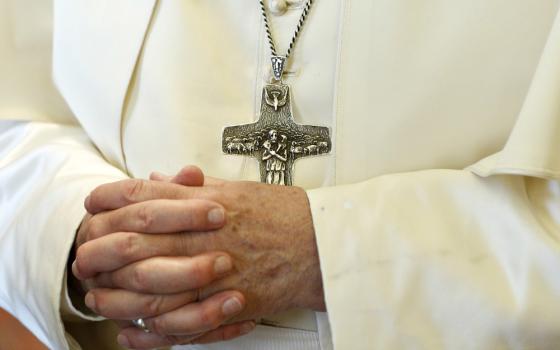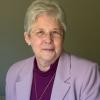I have only once seen a real shepherd herding sheep, and that was when I was in Northern Africa with the Peace Corps in the 1970s. It was not a heavenly Christmas card scene. The shepherd that I saw was as unkempt as his sheep. Long days wandering the hillsides while the sheep graze is a rough life.
In the fields, sheep are not soft and cuddly. Their wool is clotted with mud, manure, burrs, and knots. Often the sheep seem confused and unaware of their surroundings. They frighten easily and wander off from the herd. They are not known to be particularly intelligent animals.
In fact, they seem unaware of the danger that surrounds them. Without natural defenses, they have no way to protect themselves from predators like wolves and are vulnerable to attacks. Since they are unable to provide their own safety, they need a shepherd's help and protection. Friends who know sheep tell me that the sheep do trust the shepherd's voice and do respond to their leader's call.
The shepherd protects and manages the sheep with a special staff. It has a hook on the end to capture a wandering sheep and bring it back to the herd. The rod of the staff is used to encourage the sheep to stay together.
The shepherd needs these sheep for his livelihood. He sells the wool and provides food for his family.
With the shepherd to watch them, these sheep are protected.
This interdependency of shepherd and sheep is used in early Christian images of Jesus the Good Shepherd. We are the sheep who need to be protected from dangerous attacks. Jesus cares enough about our safety to stay with us in the fields. I find this Christian image still comforting in a world far removed from the hillsides of biblical times. Fear and vulnerability live within us even today.
Pope Francis understands this interdependency between Jesus as Good Shepherd and our lives today.
The papal insignia on his pectoral cross shows Jesus portrayed as a shepherd. In the pope's memorable 2013 Holy Thursday Chrism Mass homily, he said to his priests, with great emphasis: "This is what I am asking you, be shepherds with the smell of sheep."
I like the pope's image of being a shepherd among us so much, that I have a copy of his pectoral cross in my own collection of crosses. It reminds me of my own responsibility to reach out to others as a protector and caregiver whenever I am able — even though, as the pope warns, the sheep may smell.
I sometimes remember the dog we had when I was growing up. She was a shepherd to us. She went with us everywhere. We had a paper route in the family. My two older brothers delivered papers morning and evening. I was initiated into the delivery operations by being given the Sunday morning paper route.
The papers were particularly heavy since there was only one delivery on Sunday. My dad would pick up the bundled papers with the car and leave a pack of newspapers on the street corners of my route. The dog and I walked the papers to the doorsteps. I found great comfort in having our dog as a companion in the early morning hours.
The feeling of companionship stays with me when I remember those early mornings delivering papers.
Since my dog was with me, I didn't feel frightened. I was reminded of that safe feeling when I visited my aunt in a nursing home. She had a stuffed cat on a chair. I picked it up and it made a cat sound and a stretching movement. I looked up at her and asked if she petted this animal. She said, "Yeah, especially at night when it reminds me of my cat." I knew what she meant. Holding an animal can be very comforting. Holding and petting even a stuffed animal can be very comforting. There is a warmth and peacefulness that lessens the feeling of loneliness.
As I grow older and attend more wakes and funerals, I'm aware of how often Psalm 23, "The Lord is my Shepherd," is chosen as a Scripture for these services. As I hear the psalm read or sung, it does comfort me.
Asking the Good Shepherd to come to us, hold us, be with us, is one of the ways I know who God is. I can only long for the experience of a Good Shepherd to guide me through the dark night of death to the new dawn. It helps me to know that I will not be alone as I make this last journey.
[Laura Hammel is a member of the Sisters of St. Clare, a Poor Clare community in Saginaw, Michigan. In addition to the prayer ministry in her diocese, she has developed and maintained a website introducing different prayer forms useful at certain times of the year. These include an Advent calendar, contemplation using Stations of the Cross, a Pentecost Novena and Mysteries of the Rosary.]

